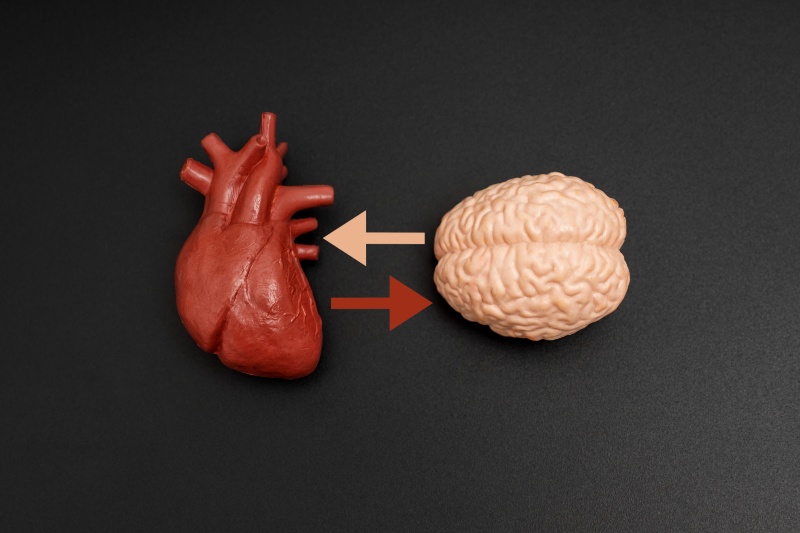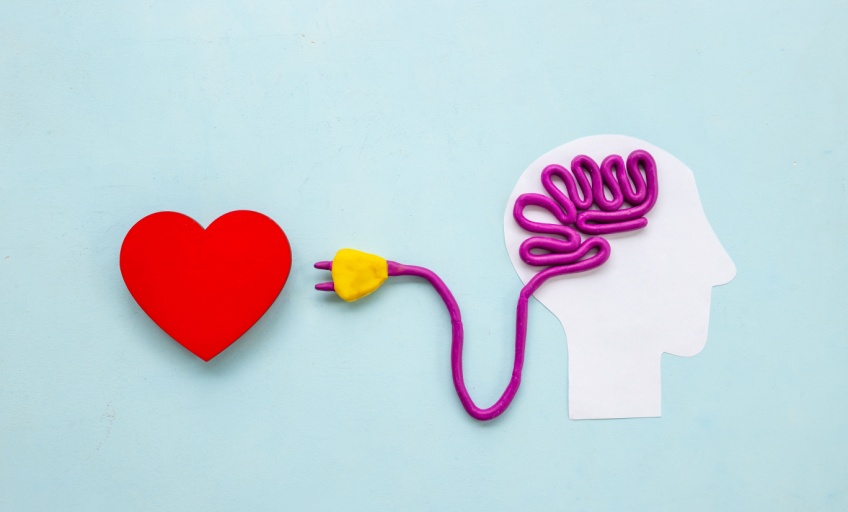Your heart and brain are vital organs supporting your life. Alzheimer’s is a progressive disease that destroys memory and other important mental functions. Now, let us explore the connection between heart health and Alzheimer’s disease.
What you need to know:
- The heart-brain connection
- How does heart health impact cognitive function?
- The link between heart health and Alzheimer’s
- Managing heart health and Alzheimer’s
The heart-brain connection
Heart and brain health are closely connected, and factors that affect one can also affect the other. For example, cardiovascular diseases can lead to brain diseases like dementia, stroke, and cognitive impairment. Some studies have shown that atrial fibrillation and heart failure can increase the risk of these conditions. Other factors that affect heart and brain health include blood pressure and physical activity. For example, early onset of high blood pressure has been linked to cognitive decline later in life, and people who are less physically active are more likely to develop dementia.
How does heart health impact cognitive function?
Heart health can impact cognitive function in several ways, including:
Cardiovascular disease and brain health

The cardiovascular system and the brain are closely interconnected, and the health of one can significantly impact the other. Poor cardiovascular health impairs blood flow to the brain, increasing the risk of stroke, cognitive decline, and dementia. Chronic inflammation from cardiovascular disease (CVD) can also harm brain cells, leading to nerve degeneration. Depression, common in CVD patients, can further impact cognitive function. Small areas of damage in the brain’s white matter, are often associated with high blood pressure and other cardiovascular risk factors. These lesions can affect brain function and contribute to cognitive decline.
High blood pressure and cognitive decline
High blood pressure can contribute to cognitive decline through several mechanisms:
- It can damage blood vessels, leading to inflammation and neurovascular dysfunction – a condition that adversely affects the blood supply to the brain or spinal cord.
- Damage to the brain can lead to brain atrophy – the loss of brain cells and their interconnections.
- It can also contribute to proteinopathy – a group of disorders characterized by the accumulation of misfolded proteins in the brain.
- High blood pressure can lead to the buildup of plaque in the arteries (atherosclerosis), which reduces blood flow to the brain.
- It can also increase stroke and dementia risks.
Cholesterol levels and brain function
Cholesterol levels can be linked to brain function in different ways depending on age:
- Midlife: High cholesterol levels may increase the risk of dementia and cognitive decline later in life.
- Late-life: However, a review found that high cholesterol levels may not be associated with cognitive function later in your life or may even have an inverse relationship. An analysis of older adults found that cholesterol may have protective properties against mental decline in the elderly.
The link between heart health and Alzheimer’s
Research shows a connection between Alzheimer’s disease and cardiovascular disease – health conditions that affect the circulatory system, including the heart, arteries, veins, and capillaries. There may be a possible genetic link between these two conditions. Previous studies have linked heart conditions like:
- hypertension – high blood pressure,
- dyslipidemia – a condition that occurs when there are abnormal levels of lipids in the bloodstream, such as high cholesterol, high triglycerides, etc.,
- coronary artery disease – occurs when the coronary arteries, which supply oxygen to the heart, become narrow and reduce blood flow to the heart,
- atrial fibrillation – a heart condition that causes the upper chambers of the heart to beat irregularly and rapidly, and
- Diabetes – a group of diseases that result in too much sugar in the blood (high blood glucose)
to an increased risk of developing Alzheimer’s disease and other forms of dementia. Heart disease and Alzheimer’s disease share many risk factors, including high blood pressure, obesity, diabetes, and tobacco use. Poor heart health can also lead to brain dysfunction that could cause dementia before plaque builds up in the brain’s blood vessels.
Managing heart health and Alzheimer’s
Some lifestyle choices that may help reduce the risk of both heart disease and Alzheimer’s include:
- Exercise – Regular exercise can improve heart, joint, and muscle health. It can also help with sleep and constipation. People with Alzheimer’s who have trouble walking can try chair exercises, stationary bikes, or stretching with elastic bands.

- Diet – Eat a diet of fresh produce, healthy oils, and foods low in saturated fat, such as a Mediterranean diet, including vegetables and fruits, whole grains, legumes and beans, nuts and seeds, herbs and spices, etc.
- Blood pressure – Regularly manage and monitor high blood pressure.
- Weight – Maintain a healthy weight. Studies have found that people who were overweight or obese in their midlife were more likely to develop Alzheimer’s later in life.
- Other habits – Quit smoking and excessive drinking, and get enough sleep. Also, reduce stress and engage in intellectual stimulation.
The heart and brain are deeply interconnected. Prioritize their health by following the mentioned guidelines to support your long-term well-being.
Stay tuned to the Activ Living Community. Keep up to date with the latest health tips and trends through expert videos, podcasts, articles, and much more on nutrition, fitness, mindfulness, and lifestyle conditions like Asthma, Blood Pressure, Cholesterol, and Diabetes. Activ Living ke saath sahi sehat ki shuruat ABHI karo.
You may also be interested in the following blogs:
Popular Searches
How to lower blood pressure | Fruits good for liver | Unhealthy foods | Ragi Benefits | Basal Metabolic Rate | Acupressure points for High Blood Pressure | Ayurvedic medicine for blood pressure | How to control cholesterol at home | Homeopathy for Asthma | Biological Age | Home remedies for TB | Natural beta blockers | Negative effects of internet | Types of walking | Blood pressure calculator | Blood sugar calculator | BMI Calculator





 1800-270-7000
1800-270-7000








